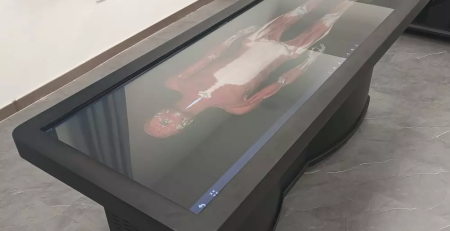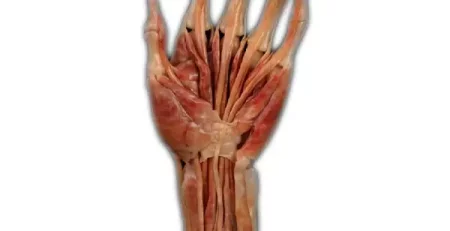Detailed Representation: Enhancing Education with the Digihuman 3D Printing Model of Hand Muscles
Detailed Representation: Enhancing Education with the Digihuman 3D Printing Model of Hand Muscles
Date:
At DIGIHUMAN, we are dedicated to advancing anatomical education through innovative technologies that facilitate a deeper understanding of human anatomy. Our latest offering, the Digihuman 3D Printing Model—Hand Muscles, exemplifies our commitment to quality and precision in anatomical modeling. This model provides an invaluable resource for medical students, educators, and professionals who seek an enhanced learning experience.
Realistic Representation of Hand Anatomy
The Digihuman 3D Printing Model of a hand muscle model is meticulously constructed from high-precision digitized human body data. This muscles of the hand model accurately replicates the morphological characteristics and spatial relationships of bones, muscles, tendons, and other structures in the hand. By employing advanced 3D printing technology, we ensure that every detail reflects real specimens, allowing us to study anatomical relationships effectively.
This level of realism is crucial for understanding how the various components of the hand interact during movements. The muscles of the hand model enable us to explore their functional significance, which is especially beneficial for those engaged in fields such as physical therapy, surgery, and general medical education. The faithful representation of the muscles, along with the intricate details of the tendons, reinforces our comprehension of the complex anatomy of the hand.
Detailed Textures and Structures
One of the standout features of the Digihuman 3D Printing Model of hand muscles is its attention to detail concerning textures. The model captures the textures of muscle fibers and tendons in the forearm and hand, closely mirroring real hand specimens. This tactile quality allows us to appreciate not just the visual aspects but also the feel of anatomical structures, which can enhance our understanding of how these tissues function in vivo.
Additionally, a section of skin and superficial fascia is preserved on the muscles of the hand model. This feature is essential for illustrating the spatial relationships between the bones, muscles, and surrounding soft tissues, giving us a comprehensive view of the anatomical landscape. By incorporating these elements, we create a more holistic educational tool that caters to various learning styles.
Practical Applications in Education and Training
The applications of the Digihuman 3D Printing Model of hand muscles extend beyond traditional educational settings. It serves as a valuable training aid for medical professionals who require a detailed understanding of hand anatomy for surgical procedures or rehabilitation strategies. By utilizing this model, practitioners can visualize and simulate complex anatomical relationships, thereby improving their skills and competencies.
Conclusion: A Step Forward in Anatomical Learning
As we strive to enhance the quality of anatomical education, the Digihuman 3D Printing Model of hand muscles stands as a critical resource for students and professionals alike. Its precision, detail, and realistic representation of the muscles of the hand make it an exceptional tool for deepening our understanding of human anatomy.
We invite educational institutions, healthcare providers, and training facilities to explore the potential benefits of integrating the Digihuman 3D Printing Model of hand muscles into their programs. Together, let us elevate the standards of anatomical education and foster a deeper appreciation for the complexities of human anatomy with DIGIHUMAN.
Related Posts
 Blog
BlogNavigating the Challenge: Is Anatomy and Physiology Hard?
As we embark on our journey into the fields of healthcare and biology, many students grapple with a common concern:...
 Blog
BlogSustainable Solutions in Education: The Digihuman Hand Skeleton Model with Muscles
We at DIGIHUMAN are committed to pushing the boundaries of 3D printing technology to enhance educational experiences in anatomy and medical...
 Blog
BlogRealistic Hand Muscles 3D Model: Transforming Learning Experiences
At DIGIHUMAN, we are committed to advancing the field of anatomical education through innovative technology. Our offering, the Digihuman 3D Printing...

